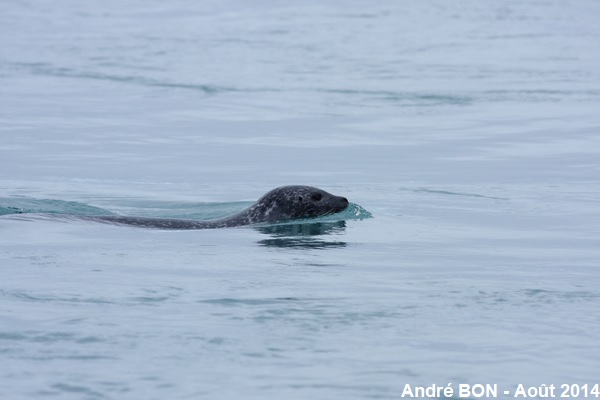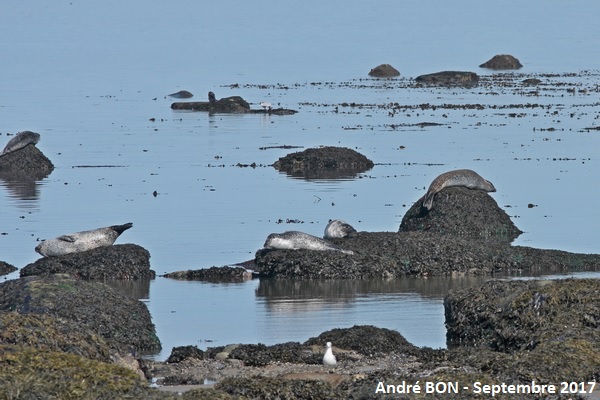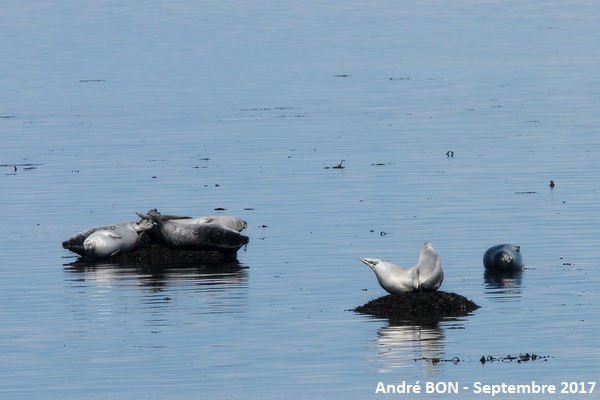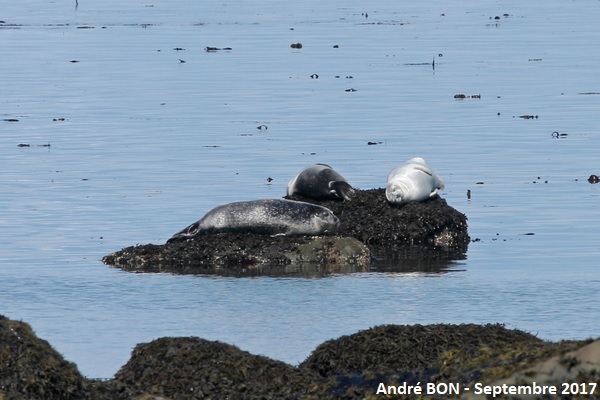



| Common Seal (Phoca vitulina (Linnaeus, 1758)) |




|
|
Scientific name: Phoca vitulina (Linnaeus, 1758) Common name: Common Seal Other names: Harbour Seal French name: Phoque commun, Veau marin Family: Phocidae Size: Body size: 1.60 to 1.90m for males and 1.60 to 1.70m for females; Weight: 80 to 170kg for males and 60 to 145kg for females. Biotope: Coastal areas, sand beds and estuaries at low tide. Food: Fishes, crustaceans and molluscs. Longevity : Up to about 25 years for males and 35 years for females. Geographic area: Shores of the Northern Hemisphere oceans, Atlantic and Pacific. |
Common Seals have a spindle-shaped body with a more or less spotted short grey to light brown fur. The head is rounded and shows a clear curve between the forehead and the muzzle. On the sand beds, at rising tide, Common Seals adopt the so-called "banana" position by raising their head and their fins to stay in contact with the sand for as long as possible. Females can mate with multiple males in the spring or early in autumn. They usually only give birth to a single baby that they breastfeed for 3 or 4 weeks. |
| [To know more about the Common Seal] [Next picture] [Top] |

|
I have seen some Common Seals while visiting the beautiful glacier lagoon of Jökulsárlón. This one was photographed in the channel to the sea. The curve between the forehead and the muzzle is the key to identify this one as a Common Seal. |
| [To know more about the Common Seal] [Next picture] [Previous picture] [Top] |

|
The Bic National Park is known to be a resting and calving area for Common Seals. The species has even become the emblem of the park. |
| [To know more about the Common Seal] [Next picture] [Previous picture] [Top] |

|
The sightings are quite distant and a long view would have been welcome. We see, on this picture, one of the seals in the typical position of the "banana", head and hind limbs raised. |
| [To know more about the Common Seal] [Previous picture] [Top] |

|
I don't know how the activity varies during the day but apparently we arrived at siesta time. |